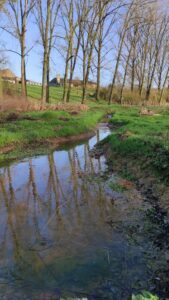Wereldwaterdag vieren we met Fiere Rivieren én een nieuwe brochure met realisaties
Hoera, het is Wereldwaterdag en dat vieren het we uiteraard binnen LIFE Belini! Niet alleen zijn er weer diverse activiteiten in ons projectgebied onder de campagnenaam Fiere Rivieren, we hebben ook onze tussentijdse projectresultaten gebundeld in een prachtige brochure. Zo vieren we vandaag nog eens extra onze gezamenlijke inzet voor beter waterbeheer en waterkwaliteit in België.

